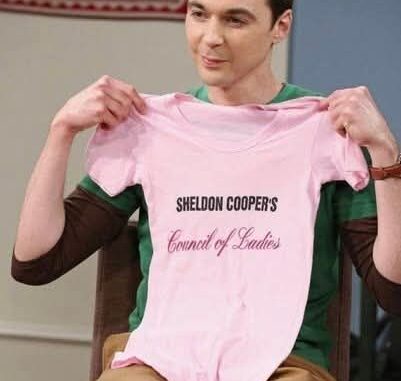
The Big Bang Theory gifted us Sheldon Cooper, a character whose growth from a socially inept genius to a loving husband and Nobel laureate is genuinely one of the most remarkable character arcs in sitcom history. When the original series began, Sheldon was a force of nature—brilliant, yes, but also hilariously rigid, self-centered, and seemingly allergic to genuine human connection, let alone the complexities of a romantic relationship. Yet, as the seasons unfolded, fans were treated to a slow, deliberate unveiling of a different, more vulnerable side of him.
Chuck Lorre, the visionary co-creator of The Big Bang Theory, once reflected on this profound transformation, stating, “It was one of those things that breathed life into the series.” This life-giving catalyst was, without a doubt, the introduction of Amy Farrah Fowler. Amy didn’t just tolerate Sheldon’s myriad eccentricities; she actively challenged him, pushing him to grow in ways no one else had dared or managed. Their relationship, built on shared intellect and a unique understanding, became the true emotional core of the show.
Sheldon’s eventual decision to marry Amy was nothing short of monumental. For a character who famously claimed to have no interest in physical intimacy or the messy realities of relationships, his journey to love was both heartfelt and hilariously awkward. Fans adored witnessing his evolution, cheering him on through every small step of emotional progress. By the time he delivered his incredibly moving and uncharacteristically emotional Nobel Prize acceptance speech in the final episode, there was absolutely no doubt—Sheldon Cooper had grown tremendously, embracing empathy, gratitude, and true connection. His journey wasn’t just about finding romance; it was a profound narrative about learning to embrace change, compromise, and the messy, beautiful realities of life with others. It served as a powerful reminder that even the most rigid among us can blossom when given the right circumstances and, crucially, the right people.

Young Sheldon: Unpacking the Genesis of a Genius (and His Growth)
Now, with the prequel series, Young Sheldon, we gain an even deeper, richer understanding of the forces that shaped this iconic character. While The Big Bang Theory showed us the finished product and his adult evolution, Young Sheldon delves into the very foundations of his unique personality, giving context to his quirks, anxieties, and eventual capacity for growth.
The spin-off brilliantly explores Sheldon’s formative years in East Texas, highlighting the challenges he faced as a child prodigy in an environment that often struggled to understand him. We see the origins of his need for routine, his aversion to physical contact, and his absolute dedication to science. The series shows us the family dynamics—his incredibly supportive mother Mary, his often-misunderstood father George Sr., his practical twin sister Missy, and his wise-cracking Meemaw—who, despite their own flaws, provided a foundational (albeit often chaotic) love that subtly nurtured his developing emotional landscape.
Young Sheldon provides crucial insight into why Amy was so vital for his adult self. We witness his early struggles with social cues, bullying, and the sheer isolation of being intellectually superior but emotionally underdeveloped. These childhood experiences underscore the magnitude of his later breakthroughs in The Big Bang Theory. The prequel effectively illustrates that while Sheldon’s rigidity was innate, his capacity for love and connection was always simmering beneath the surface, waiting for the right person (like Amy) and the right circumstances to fully emerge.
By showing us the “why” behind Sheldon’s adult eccentricities, Young Sheldon doesn’t just make his original character funnier; it makes his eventual transformation in The Big Bang Theory even more poignant and believable. It’s a testament to brilliant character development across two hugely successful shows, proving that even a genius like Sheldon Cooper had a long, fascinating journey of growth ahead of him, starting from his very beginnings.
